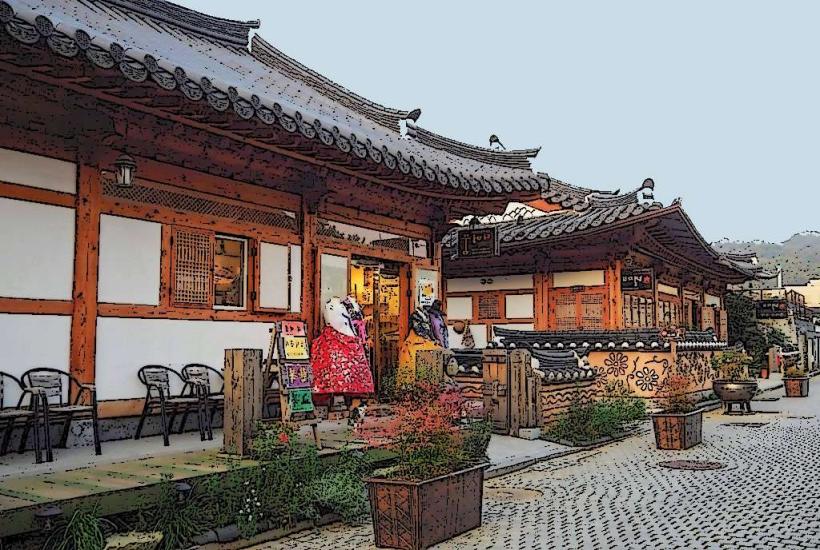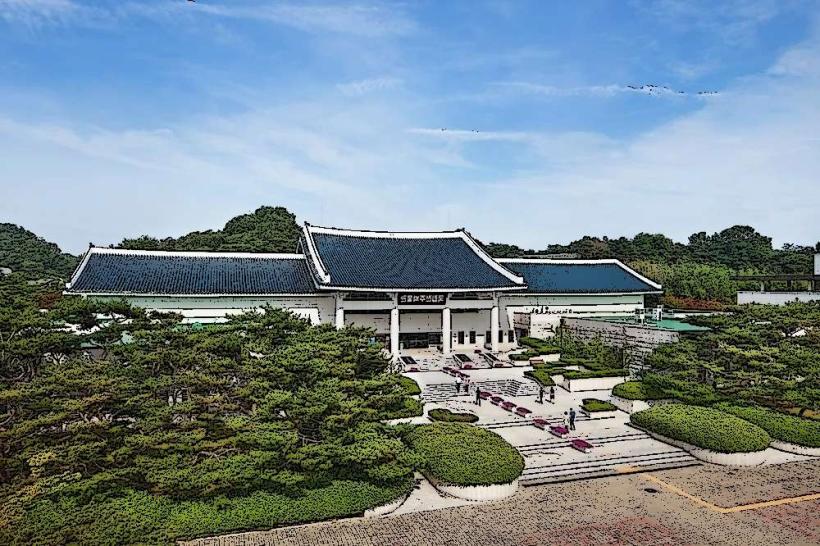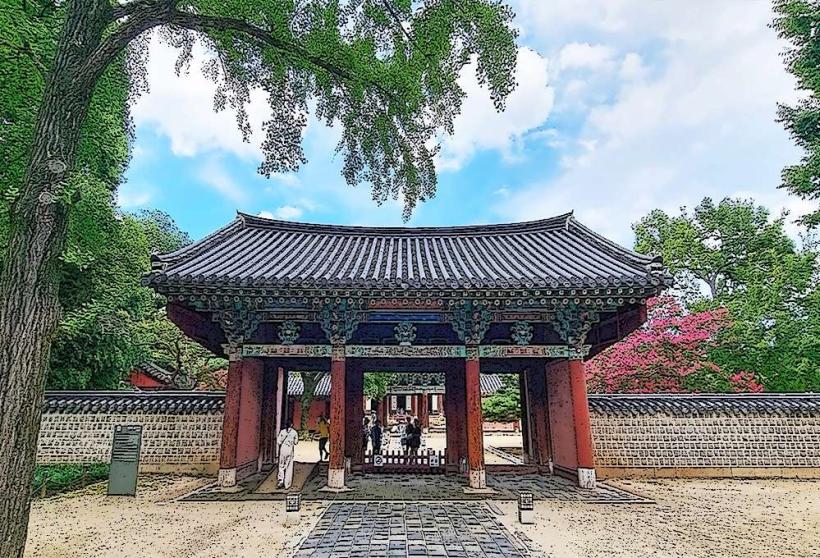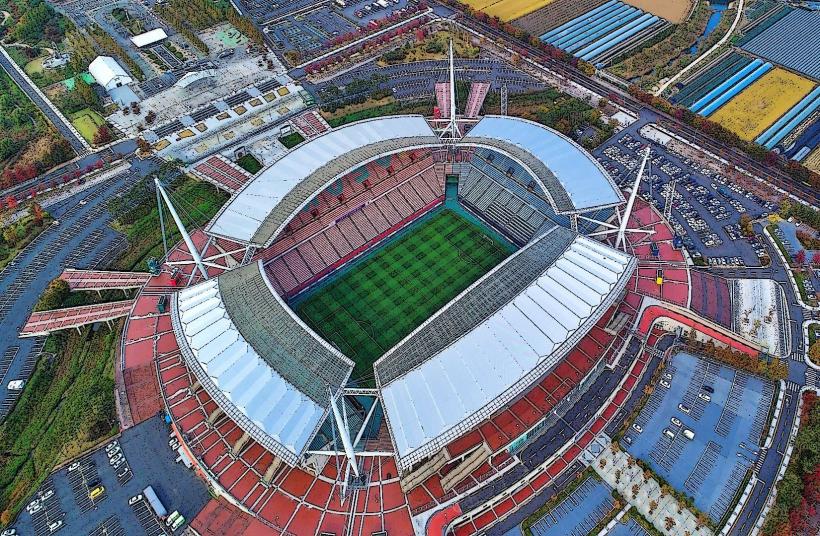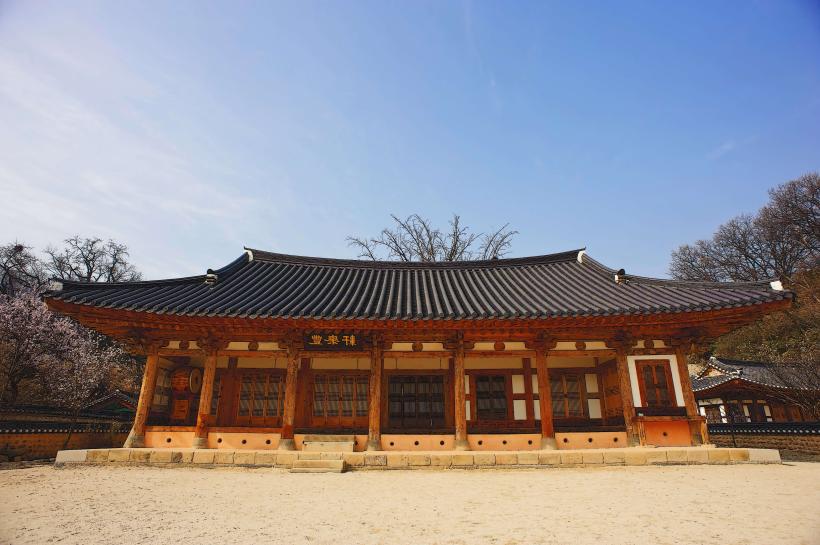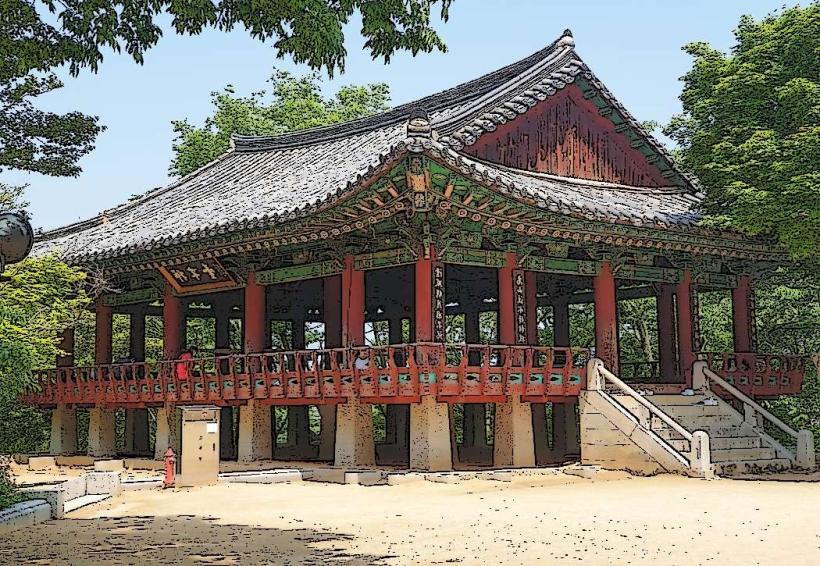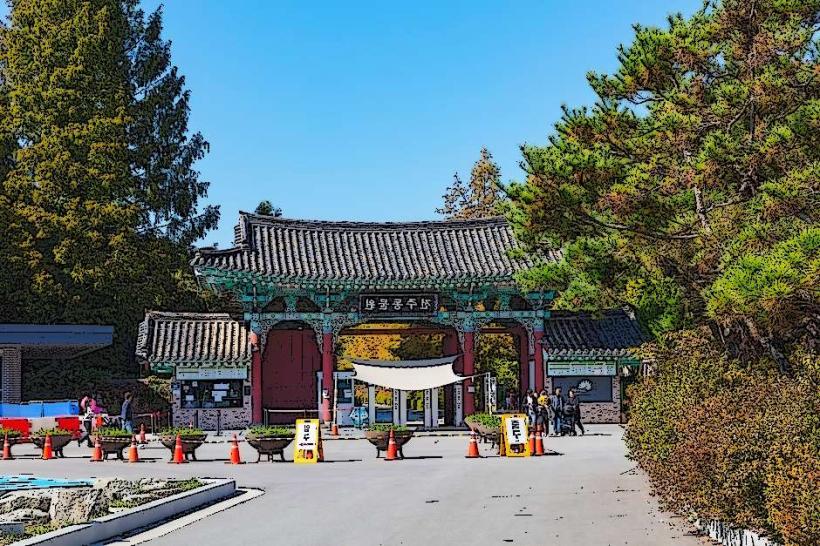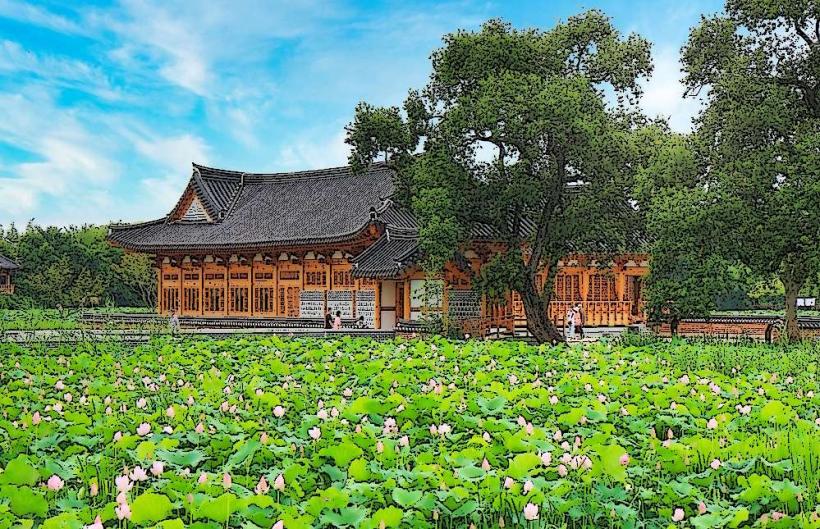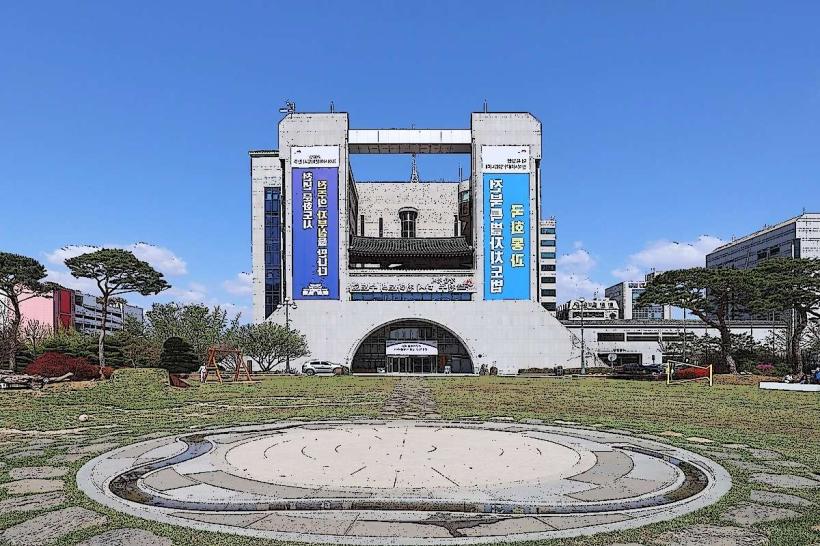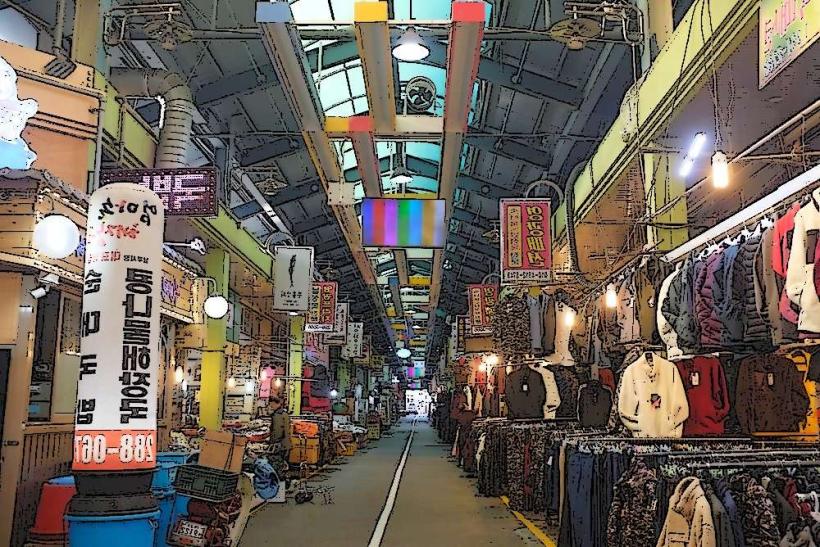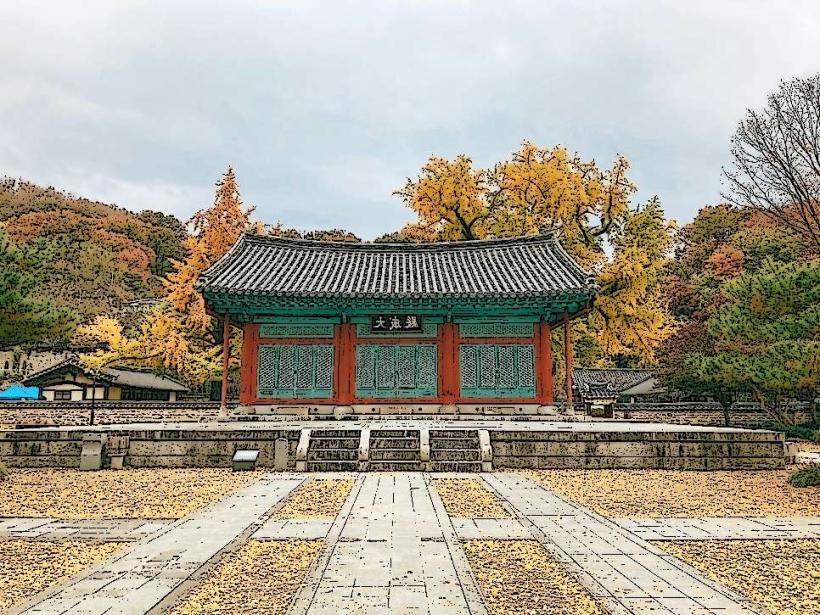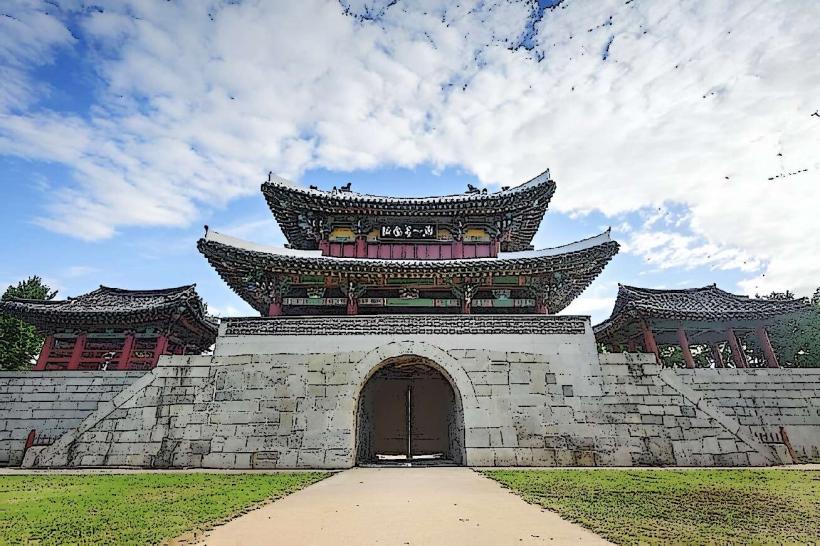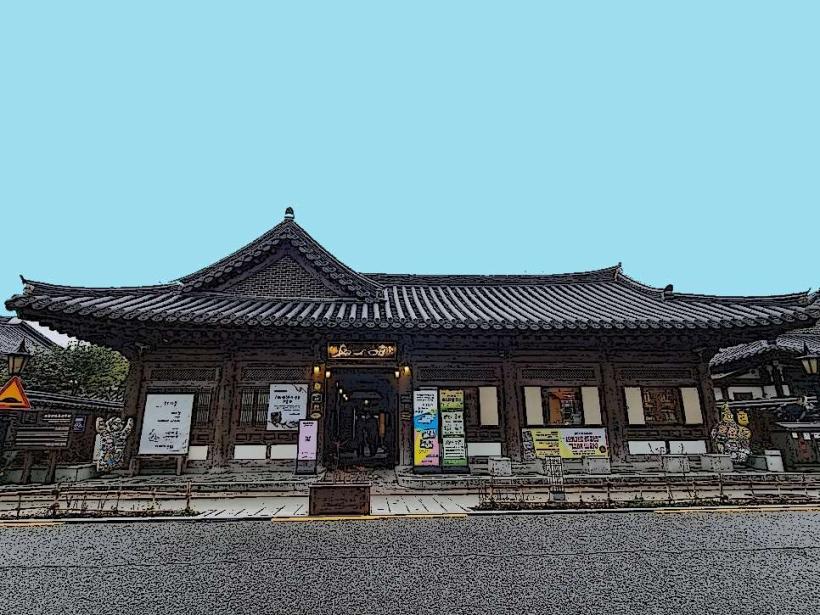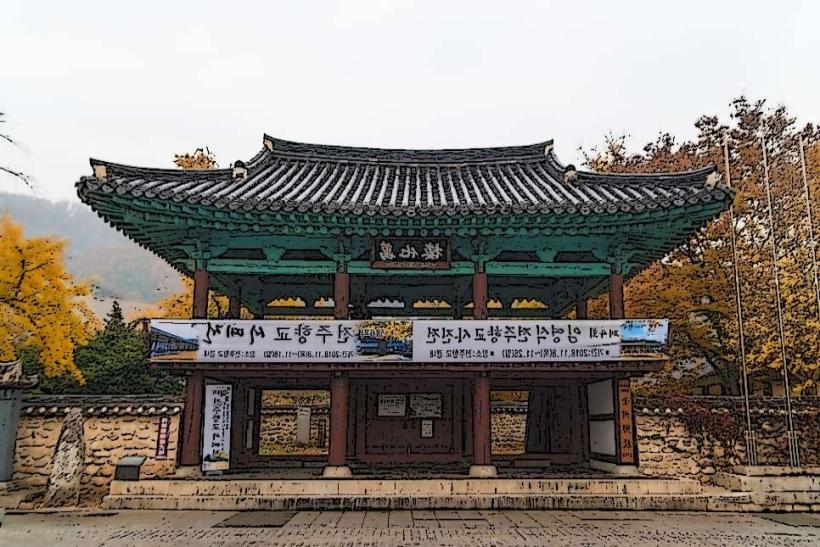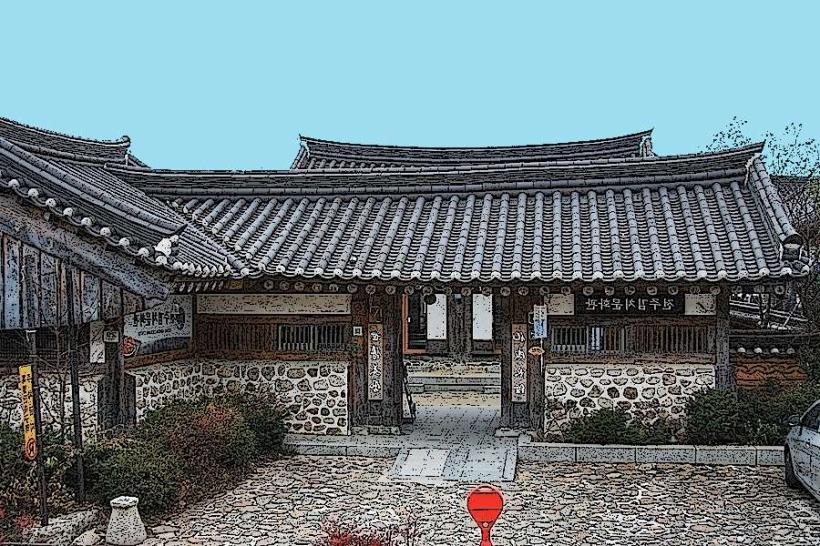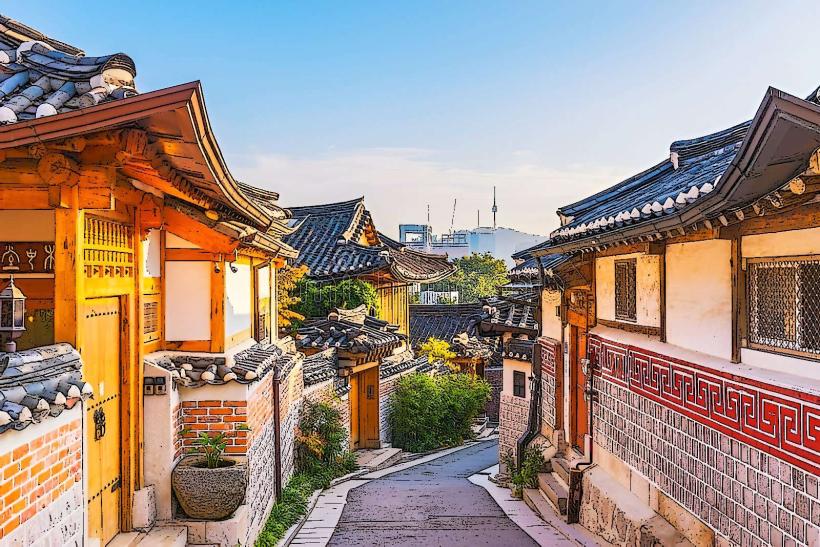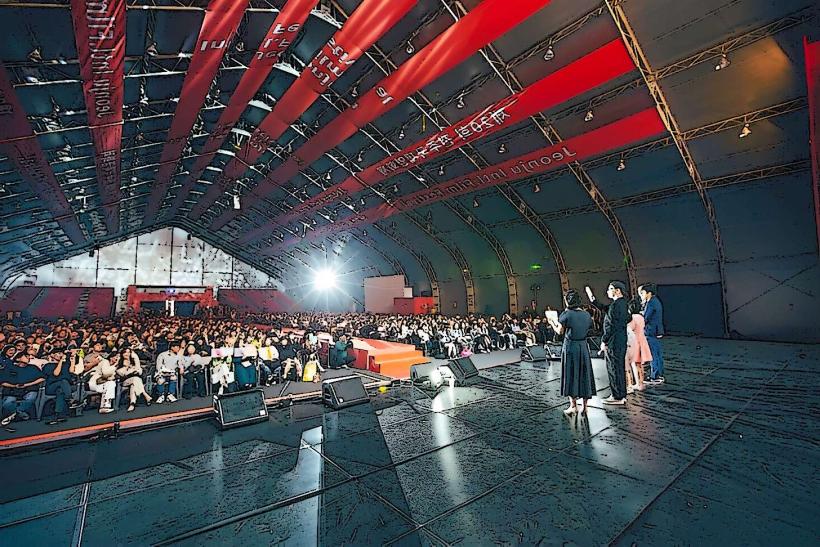Information
Landmark: Jeonju Crafts Exhibition HallCity: Jeonju
Country: South Korea
Continent: Asia
Jeonju Crafts Exhibition Hall, Jeonju, South Korea, Asia
The Jeonju Crafts Exhibition Hall is a facility dedicated to showcasing traditional Korean crafts, located within the city of Jeonju, South Korea.
It serves as a venue for displaying and promoting the artistic heritage of the region.
Visual Characteristics
The building is a single-story structure constructed primarily from exposed red brick. It features a low-pitched, dark grey tiled roof with wide eaves. The entrance is marked by a simple wooden door and a small, paved courtyard. The interior consists of open exhibition spaces with white walls and polished concrete floors.
Location & Access Logistics
The hall is situated at 135 Gyeongwon-dong 3-ga, Wansan-gu, Jeonju-si, Jeollabuk-do, South Korea. It is approximately 1.5 kilometers southwest of the Jeonju Hanok Village. Access by car is via Gyeongwon-ro, with limited on-site parking available. Public transport options include city bus lines 79, 105, and 541, which stop within a 5-minute walk at the Gyeongwon-dong bus stop.
Historical & Ecological Origin
The Jeonju Crafts Exhibition Hall was established in 2003. Its purpose is to preserve, promote, and exhibit the diverse range of traditional Korean crafts, including pottery, textiles, metalwork, and woodworking, that are characteristic of the Jeonju region and South Korea as a whole.
Key Highlights & Activities
Visitors can view permanent and temporary exhibitions of handcrafted items. Demonstrations by artisans are occasionally held. The hall also facilitates the sale of selected craft products.
Infrastructure & Amenities
Restrooms are available on-site. Limited seating is provided within the exhibition areas. Cell phone signal (4G/5G) is generally strong. No food vendors are located within the hall itself, but numerous options exist in the nearby Hanok Village.
Best Time to Visit
The hall is open year-round. Weekday mornings generally offer fewer crowds. The best time for photography is during daylight hours when artificial lighting is supplemented by natural light from the building's windows.
Facts & Legends
Jeonju is historically recognized as a center for traditional Korean culture and cuisine. The crafts displayed at the hall often reflect techniques passed down through generations, with some artisans representing the fifth or sixth generation of their craft families.
Nearby Landmarks
- Jeonju Hanok Village (0.5km Northeast)
- Jeonju National Museum (2.1km West)
- Omokdae and Imokdae (1.2km Northeast)
- Jaman Mural Village (1.0km East)
- Jeondong Catholic Cathedral (0.8km Northeast)

